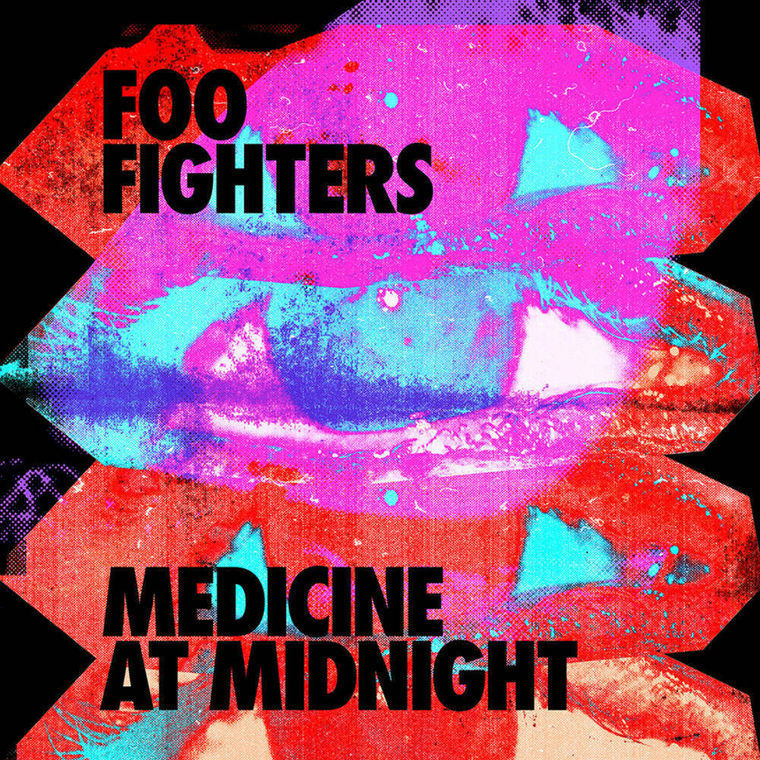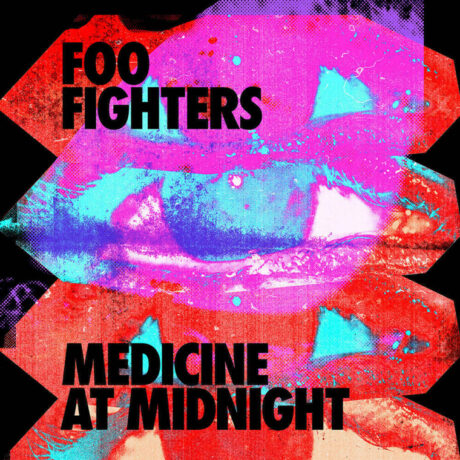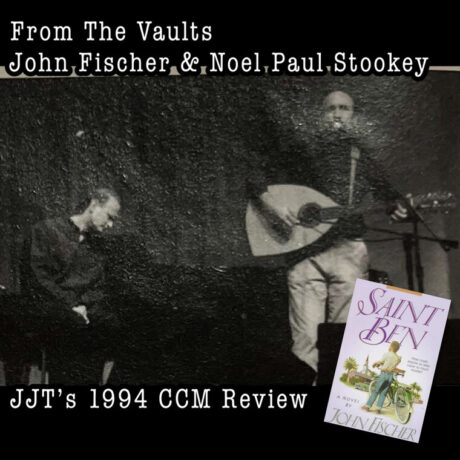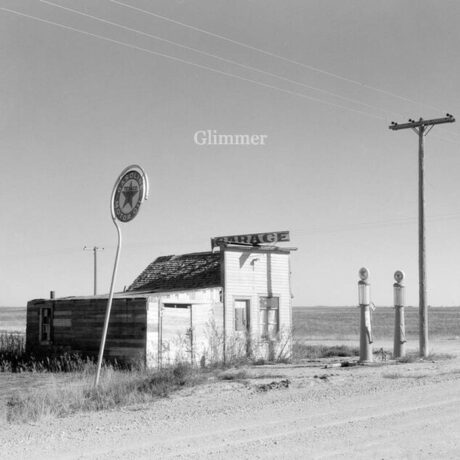The Foo Fighters’ Good Medicine
‘ It can be risky business trying to dig too deep for meaning in a Foo Fighter’s record. Dave Grohl and the boys have perfected a form of populist rock that remains universal due in significant part to its breadth. It’s been clear for 25 years now that Grohl sees himself less as an artist with something he needs to get off his chest than as a servant of his audience with a calling to entertain and uplift. Thus his lyrical hooks have been as vaguely epic and grand as have been the riffs and the drum sounds. To get too specific or personal might break the spell. But on their tenth album, Medicine At Midnight, these bastions of Camaro Rock seem to be risking a bit more specificity and diversity in the service of their fans. It’s as if somehow they understand that unsubstantiated party platitudes burn away like carbs when fate takes so much of the stuff we have collectively found comfort and identity in away from us. On Medicine at Midnight The Foos amp up the butt-shaking party factor and the soul-searching introspection in equal measure to deliver a real gut-punch of love. Like a therapy session delivered via text messages in the middle of a carnival, Grohl and Co seem determined to attempt the impossible. Oh, and they only give themselves nine songs and 36 minutes in which to do it.
It can be risky business trying to dig too deep for meaning in a Foo Fighter’s record. Dave Grohl and the boys have perfected a form of populist rock that remains universal due in significant part to its breadth. It’s been clear for 25 years now that Grohl sees himself less as an artist with something he needs to get off his chest than as a servant of his audience with a calling to entertain and uplift. Thus his lyrical hooks have been as vaguely epic and grand as have been the riffs and the drum sounds. To get too specific or personal might break the spell. But on their tenth album, Medicine At Midnight, these bastions of Camaro Rock seem to be risking a bit more specificity and diversity in the service of their fans. It’s as if somehow they understand that unsubstantiated party platitudes burn away like carbs when fate takes so much of the stuff we have collectively found comfort and identity in away from us. On Medicine at Midnight The Foos amp up the butt-shaking party factor and the soul-searching introspection in equal measure to deliver a real gut-punch of love. Like a therapy session delivered via text messages in the middle of a carnival, Grohl and Co seem determined to attempt the impossible. Oh, and they only give themselves nine songs and 36 minutes in which to do it.
As they have been promising since word of this COVID-delayed album first started coming out last year, Medicine at Midnight breaks groovy new ground for the band with several songs that push into funkier, 70s-guitar-rock side of pop than anything they have done to date. It’s hard not to notice elements of Sly and the Family Stone, Foghat, Grand Funk Railroad, or Lenny Kravitz here and there. But in some cases, they go downright off the reservation.
“Shame Shame,” builds sparsely on a quirky drum pattern, sounding more like something Genesis or David Bowie might have done in the 80s than anything this band has attempted before. That they chose this as the first single, and as the song to perform on SNL, is telling. On the one hand, yes, it warns listeners that this is not another standard FF record. However, the official video, which Grohl has said references a central image from a dream he had as a kid, is an intimate reflection on the toxic burden shame can be. It may offer a glimpse into how Grohl understands his calling as an artist as well. The central motif is that he, broken guitar in hand and beset by a woman who transforms from burden to partner to stumbling block with balletic fluidity, is making his way up a bleak hill, at the top of which sits a coffin next to a dead tree. He is clearly on a mission to release whoever is inside that coffin, but as he gets close, the coffin bursts into flames. He ultimately can’t help whoever is trapped in there because the heat is too great. That inability leaves him feeling a sense of shame. It’s clear that as groovy and danceable as the record may be, it’s also some of Grohl’s most personal writing.
Seen through the lens of “Shame Shame,” the rest of the album falls into a lovely arc. The opening song, “Making A Fire,” might want to distract you with the groovy female backing vocals and the Sly beat – but you can’t miss lines like “Threw away those broken heroes / They’re just wood and wires / Hallelujah, spread the news boy / Don’t believe the hype.” The poppiest Foo track yet, “Cloudspotter,” could be from the 70s, 80s, or next year – but the dancefloor sweetness doesn’t take any of the edges away from a lyric that aims at those just looking for something to fight about. “Waiting On A War” reminds us of the early post-grunge Foos, as Grohl admits right up front that his desire to “love everyone” might not be enough these days. Instead of passively waiting for something to happen, drowning out reality with the music on the radio (or making music for the radio), he ends up repeating, “There’s got to be more to this than that,” ad nauseam.
Hard rock fans should get enough out of the blistering “No Son of Mine” to keep themselves happy for a good long time. The underlying riff is devastating, recalling Motorhead at their peak, but the lyric is a gloves-off rebuke of hypocritical leaders. It even manages to mention “the Good Book” as it gives these wolves hell. It’s a burner for sure. It makes me miss Resurrection Band’s early 80s righteously indignant snarl. “Holding Poison” backs off the throttle just a bit but keeps the tachometer spinning. And again, the repercussions of toxicity are examined impressionistically as the protagonist realizes that reaping what we sow sucks after a while. He needs to get rid of the poison, not just bottle it up a little longer. That bottle is about to blow.
The title track, and possibly the album’s theme, leaves several questions tantalizingly open. What is the medicine that he needs in the middle of the night but knows won’t cure him? And when he says, “I may be sick, but you know I’m yours,” who might he be referring to when he says “you?” It’s such a great little hook but such a profound question. The medicine I’ve been turning to – love, rock and roll, myself – is not working anymore. But I have this sense in my bones that there is more to this story. There is something that needs to be released and personal shame that needs absolution.
The thing about medicine is that people aren’t going to take it if they don’t believe they are sick or don’t think it will work. By daring to peek inward, Grohl may help some of his fans to start to contemplate the sources of disunion, fear, and brokenness that cripple each of us individually as they destroy us socially. We want to feel the ecstasy and rush of the big show but can’t raise our hands when we are chained by our past. After 25 years, this band could have just given the people what they want—which is clearly more rafter-shaking riff rock. They could have done a stripped-down acoustic record or even a country-rap record if they wanted to. That they chose to push themselves creatively and to offer a taut, punchy, feel-good record that dares to look at you across the dance floor and say, “yeah, I hurt too,” is worthwhile indeed.




